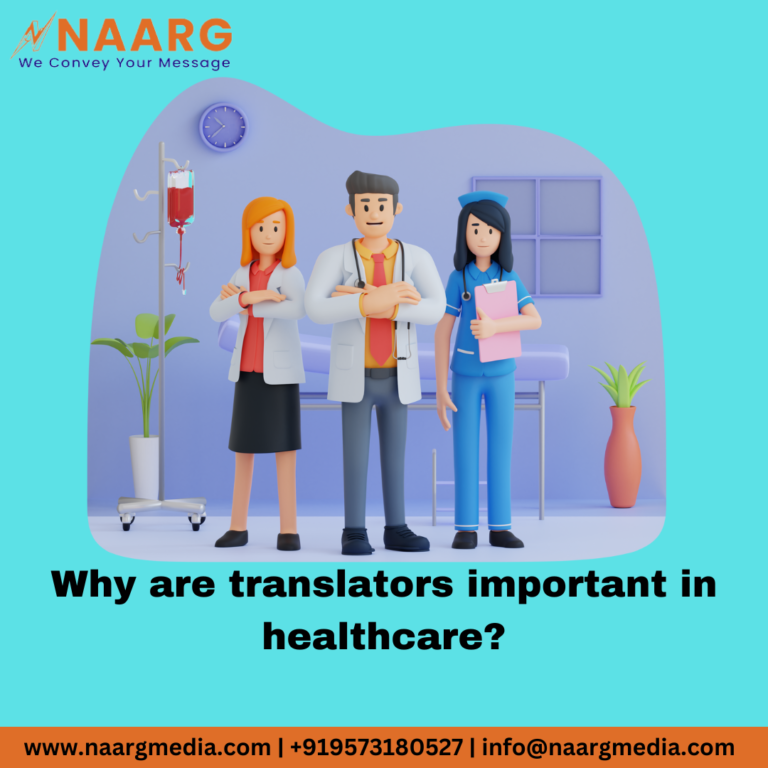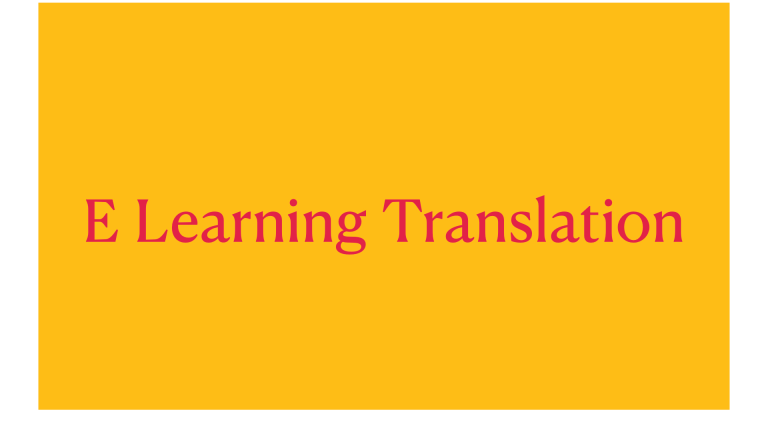Have you ever wondered how the power of words can make a life-or-death difference in the realm of healthcare?
Healthcare encounters can be incredibly daunting, even under ideal circumstances. However, when language barriers come into play, levels of anxiety and confusion reach a whole new dimension.
This is where healthcare translators and medical translation serve as invaluable allies. Enabling seamless communication between patients and healthcare providers.
In this blog post, you will get to know why translators are important in healthcare and how their contribution saves lives and fosters trust between patients and medical professionals.
Join us on this enlightening journey to understand why translators are the unsung heroes of healthcare.

The Role of Translators in Healthcare
Translators play a crucial role in healthcare by bridging the communication gap between patients and healthcare providers. When they speak different languages or have limited English proficiency it becomes more crucial than ever.
Just imagine a scenario where a person who only speaks Spanish visits a hospital in the United States. They have serious health issues and need immediate medical attention. However, the doctors and nurses at the hospital can only communicate in English, and the patient and the family members struggle to fully understand or express their symptoms accurately.
It is where a qualified medical interpreter or translator steps in. A professional medical interpreter fluent in both English and Spanish would be called upon to assist. The translator would join the doctor and patient, ensuring effective communication.
They would listen carefully to the patient’s symptoms in Spanish and then accurately convey the information to the doctor in English. The translator would also translate the doctor’s instructions or questions to the patient, ensuring they understand what is being discussed.
In this example, the translator acts as a vital link, enabling the patient and their family members to receive the necessary medical care by facilitating clear communication between the healthcare professionals and the patient.
Without the translator’s assistance, the patient might struggle to explain their symptoms accurately or understand the doctor’s diagnosis and treatment recommendations, leading to potential misunderstandings or misdiagnoses.
Professional medical interpreters in healthcare help ensure that language barriers do not hinder access to quality healthcare services. They enable patients to communicate their health concerns effectively, understand medical instructions, ask questions, and actively participate in healthcare decisions.
Their role is essential in promoting patient safety, improving healthcare outcomes, and ensuring everyone has equal access to healthcare services, regardless of the language barrier.
Why are translators important in healthcare?
Translators are important in healthcare because they help people who speak different languages understand each other. Imagine going to a hospital where the doctors and nurses only converse in a language you don’t understand.
It would be difficult to explain your symptoms or understand what the doctors are trying to say. When qualified medical interpreters are present, they can help you communicate with the healthcare providers.
They speak both languages fluently, so they can understand what you are trying to say and translate it for the doctors. They can also translate what the doctors are saying back to you, making sure you understand everything clearly.
Without professional medical interpreters, it would be much harder for doctors to figure out what’s wrong with you and provide the right treatment plan. It could lead to misunderstandings and mistakes in your healthcare.
But with professional medical interpreters, you can feel more confident that you’re getting the best care because you can communicate effectively with your healthcare team and go on smoothly with your treatment plan.
A research report by NCBI also states the importance of professional medical interpreters and how they are impacting health administrative data.
Professional medical interpreters are really important because they make sure that language differences don’t get in the way of receiving good medical care and hinder your treatment plan. They help you express your health concerns, understand the instructions from doctors, and be involved in your own healthcare decisions.
Their job is to make sure everyone, no matter what language they speak, can access healthcare services and get the help they need.

Challenges faced by healthcare translators
Every field comes with its own challenges and medical translation also faces the same issues. Healthcare translators face several challenges in their roles. Here we have listed a few challenges faced by healthcare translators.
Language Complexity
Healthcare translators must be proficient in medical terminology and complex healthcare concepts. Medical jargon can be challenging to understand and accurately translate, requiring specialized knowledge and constant learning to stay updated.
Cultural Sensitivity
Professional medical interpreters need to be culturally sensitive and aware of cultural differences, norms, and beliefs that can impact healthcare interactions. They must navigate cultural nuances to ensure effective communication and avoid misunderstandings or offense.
Time Constraints
In healthcare settings and hospital stays, time is often limited, and translators and their interpreter services must work efficiently to facilitate communication within strict time frames. They need to convey accurate information quickly, ensuring that all necessary details are translated without compromising the quality of communication.
Confidentiality and Privacy
Professional medical interpreters are entrusted with sensitive patient information, and they must adhere to strict confidentiality and privacy regulations. Maintaining patient confidentiality while accurately conveying medical information requires a high level of professionalism and ethical conduct.
In the healthcare industry, every second counts and accurate communication is a matter of life and death, professional medical interpreters emerge as unsung heroes bridging the gap between diverse languages and cultures.
At Naarg, we maintain standards of excellence to ensure the best possible medical translations without any ambiguity, ensuring a highly valuable translation service. We understand that medical language translation services require expertise and accuracy.
Entrust us to handle your medical translation with the confidentiality and safety it deserves.
Reach us at info@naargmedia.com to know more about our medical translation services.




